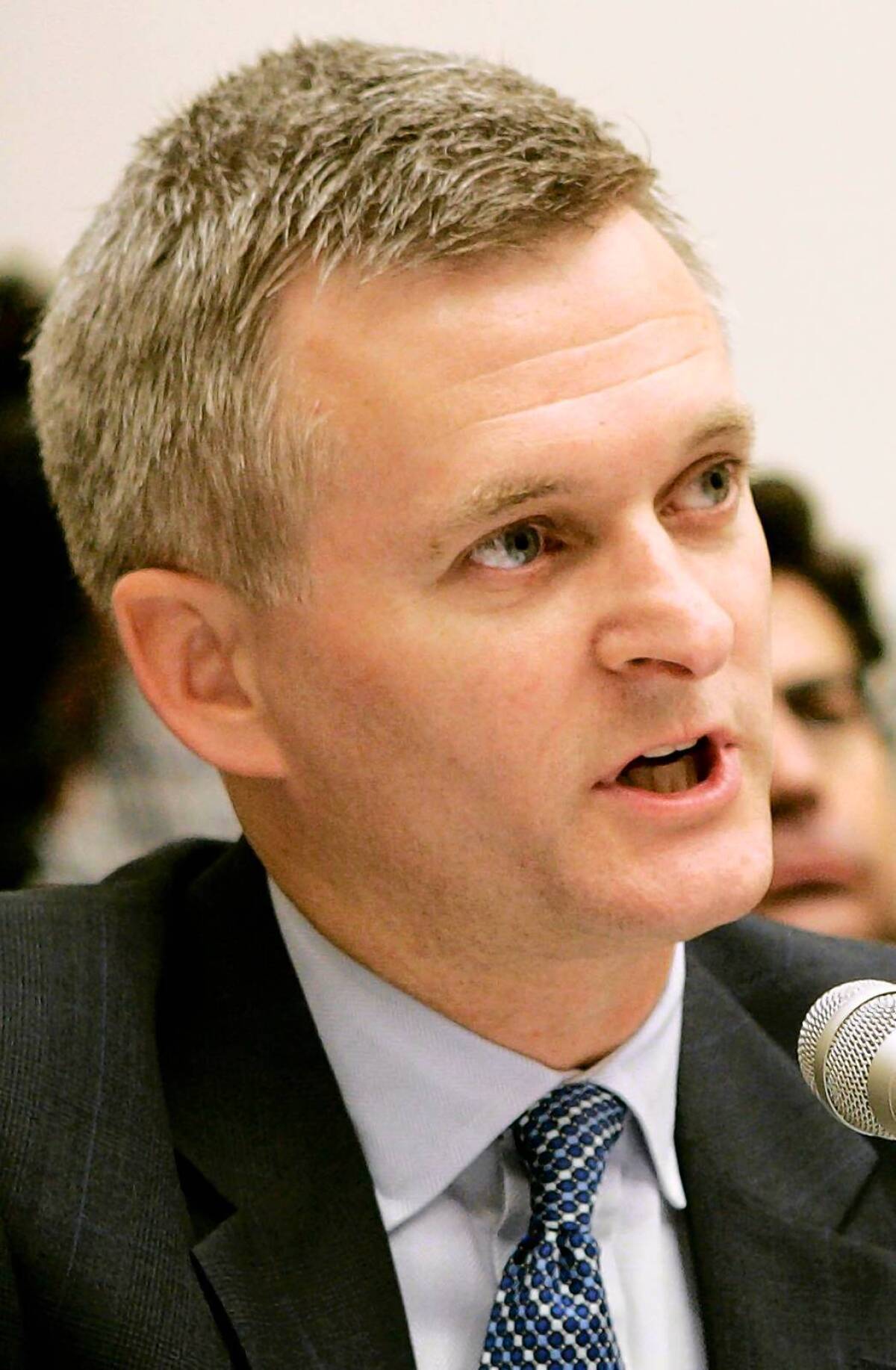New oversight board hears testimony on NSA surveillance

- Share via
WASHINGTON — As Americans were learning that the National Security Agency has been secretly collecting their phone records, a privacy board intended to monitor government surveillance finally came into existence last month — years after the Sept. 11 Commission recommended its creation.
The nonpartisan Privacy and Civil Liberties Oversight Board held its first public hearing Tuesday, taking comments from former government lawyers who support expanded surveillance and from privacy advocates who oppose it.
“We are looking for solutions,” not just commentary, said board member Elisebeth Collins Cook. She said the board wanted “recommendations on how these programs may be done differently.”
The five-member board includes Jim Dempsey, a vice president of the Center for Democracy and Technology in San Francisco and a longtime critic of the USA Patriot Act. Others include retired Judge Patricia Wald, who served on the U.S. Court of Appeals in Washington, and former George W. Bush administration attorney Rachel Brand, who is now a lawyer for the U.S. Chamber of Commerce. The board’s chairman is David Medine, a Washington lawyer.
Dempsey urged his fellow civil libertarians to offer “concrete recommendations” for improving the programs. And he urged former Bush administration lawyers to go beyond defending the surveillance policies. “It can’t be that everything is perfect,” he said.
The hearing focused on two questions. How did the National Security Agency get the authority to collect all the phone records of all Americans? And is the secret federal court that reviews the requests for surveillance a check on the government’s power or part of the problem?
The Patriot Act authorized the FBI and NSA to obtain records from banks, airlines or phone companies if they were “relevant to an authorized investigation” involving foreign terrorists. To the surprise of many, including lawmakers who wrote that provision, the NSA and the Foreign Intelligence Surveillance Court have taken the view since 2006 that the government can collect all the dialing records of calls made in the United States.
This came to light last month when former government contractor Edward Snowden released the text of a secret court order extending the collection of phone data for another 90 days.
Steven Bradbury, former head of the Justice Department’s Office of Legal Counsel under Bush, told the panel Tuesday that the dialing records were stored but not searched unless investigators were tracking the phone calls of suspected terrorists.
“In order to connect the dots, we need the broadest segment of metadata. There is no data mining,” Bradbury said. He said the actions were not properly described as “surveillance.”
But Jameel Jaffer, a lawyer for the American Civil Liberties Union, denounced the effort as a “massive dragnet” that was both “unwise and unconstitutional.” He accused the Bush and Obama administrations of having “repeatedly misled the public about the scope of the surveillance” under the anti-terrorist programs.
He said the language “relevant to an authorized investigation” in the Patriot Act was meant to limit what could be gathered. Instead, it has been read to mean the NSA may collect all the phone records because, someday, a few of them may prove useful to an investigation.
Sharon Bradford Franklin, a lawyer for the Constitution Project, said it was troubling that the public did not know how the law was being interpreted behind closed doors. “It shouldn’t take a leak of classified information for us to learn what the law means,” she said.
The panel heard criticism of the secret court that decides whether to approve the government’s requests for obtaining data and listening to phone calls.
The Foreign Intelligence Surveillance Court was created in 1978 at a time when FBI agents were seeking to track Soviet spies who may have been operating in the United States. Since 2001, it has been called upon to approve expanded surveillance designed to prevent acts of terrorism in this country.
The court is made up of 11 judges appointed by the chief justice of the Supreme Court. They serve on a rotating basis for two weeks at a time, reviewing requests for surveillance. But since they operate in secret and their opinions are not made public, it is not clear whether they serve as an independent check on the government.
Kate Martin, director of the Center for National Security Studies, warned of a “rise of a system of secret law.”
But retired District Judge James Robertson, a former member of the special court, said he came away “deeply impressed” with the judges and their commitment to protecting Americans from unreasonable searches.
However, he said of the court proceedings, it is “one-sided, and that’s not a good thing. A judge needs to hear both sides of the case.”
He urged the panel to recommend a change that would allow arguments against expanded surveillance.
Jaffer said he did not understand why all the court’s proceedings needed to be secret. For example, the decision on how to interpret the phrase “relevant to an authorized investigation” could have been argued in public by competing lawyers without disclosing national secrets, he said.
The oversight board’s chief, Medine, was confirmed by the Senate in May. He said the panel’s goal was to fully understand how the surveillance programs worked and then to recommend changes to the president and Congress.
“We want to spend some time digging into this,” he said, including by reading opinions of the secret court.
More to Read
Sign up for Essential California
The most important California stories and recommendations in your inbox every morning.
You may occasionally receive promotional content from the Los Angeles Times.











